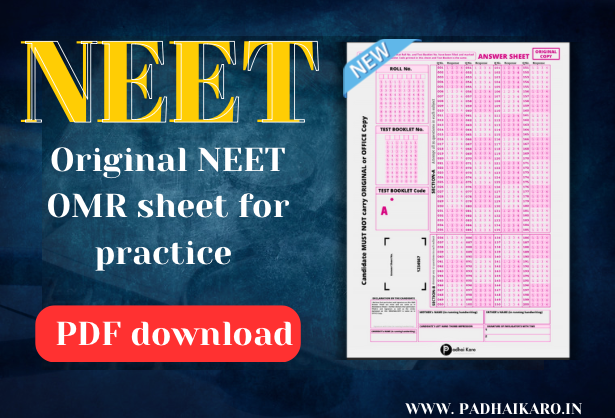Best Study Routine to Crack NEET 2025: Imagine that your dreams are about to come true, about to enter the medical field. The path to NEET 2025 success is difficult, but with the appropriate study routine, it is completely within reach. Are you ready to discover the secrets of the best scorers? From dawn-to-dusk plans to statistically supported study tactics, learn how to make every minute count and turn your preparation into a success story. Dive in and get ahead of the game with our comprehensive guide to acing NEET 2025!
1.Early Bird vs Night Owl: Best Time for Study NEET 2025
When it comes to deciding whether to study in the morning or at night, both options have their advantages and disadvantages, and the best choice often depends on individual preferences and biological rhythms. Morning study is often considered better for several reasons.
Advantages of Morning Study
- Fresh Mind and High Energy: After a good night’s sleep, the brain is well-rested, aiding focus and memory retention.
- Fewer Distractions: Early mornings typically offer a quieter environment, minimizing interruptions from social media, phone calls, or household activities. This peace allows for deeper concentration
- Natural Light: Studying in the morning exposes students to natural light, which can improve mood and energy levels while helping regulate the sleep-wake cycle
- Fewer Interruptions: Early morning hours tend to be quieter, ideal for deep, uninterrupted focus.
Challenge
- Difficulty Waking Up: Many students struggle with waking up early due to their natural body rhythms (chronotypes). This can lead to grogginess and reduced productivity if they do not get adequate sleep
2.Proper sleep
Proper sleep is crucial for students preparing for the National Eligibility cum Entrance Test (NEET) 2025, as it significantly impacts cognitive function, memory retention, and overall performance. For boys and girls aged 17 to 20, the recommended amount of sleep is typically between 7 to 9 hours per night.
This recommendation is supported by various health organizations, including the National Sleep Foundation, which emphasizes the importance of adequate sleep for physical, emotional, and cognitive development during these critical years. Not getting proper sleep can lead to a wide range of negative effects on both physical and mental health. If someone doesn’t get proper sleep, their cognitive abilities, focus, and memory are impaired, reducing study efficiency regardless of the time. Sleep is essential for brain restoration and information retention.
3.Maintain Physical Health
Maintaining physical health boosts energy, focus, and immunity, reduces stress, and enhances sleep quality. It ensures consistent study routines, sharpens the mind, and promotes emotional well-being. Regular exercise, a balanced diet, and proper rest improve discipline, mood, and overall productivity, making it essential for clearing NEET 2025.
Suggestions for Maintaining Physical Health:
- Eat Balanced Meals: Include fruits, vegetables, proteins, and whole grains; avoid junk food.
- Stay Active: Exercise, walk, or practice yoga for 30 minutes daily.
- Hydrate Well: Drink 8 glasses of water daily.
- Sleep Well: Ensure 7-9 hours of quality sleep each night.
- Stretch and Rest: Take short breaks during study sessions to avoid stiffness and fatigue.
- Maintain Posture: Sit properly to prevent back and neck strain.
- Eye Care: Limit screen time and follow the 20-20-20 rule for eye relaxation.
4. Time Management
Time management is crucial for NEET 2025 success as it ensures efficient syllabus coverage, consistent revision, and practice. It helps balance subjects, identify weak areas, and avoid last-minute stress. A disciplined routine boosts focus, enhances productivity, and maximizes performance, enabling aspirants to achieve their goals effectively and confidently.
Time Table:
Here’s a sample timetable to help you prepare effectively for NEET 2025. Adjust it based on your personal routine and preferences:
| TIME | TASK |
|---|---|
| 5:30 AM – 6:00 AM | Wake up, freshen up, and hydrate. |
| 5:30 AM – 6:00 AM | Study Biology (NCERT and notes). |
| 7:30 AM – 8:00 AM | Breakfast and light physical activity |
| 8:00 AM – 10:00 AM | Study Chemistry (focus on Physical/Inorganic). |
| 10:00 AM – 10:15 AM | Break. |
| 10:15 AM – 12:15 PM | Solve Physics problems (concept + practice). |
| 12:15 PM – 1:00 PM | Lunch and relaxation. |
| 1:00 PM – 2:30 PM | Revise topics covered earlier (short notes/mind maps). |
| 2:30 PM – 3:00 PM | Rest or nap (if needed). |
| 3:00 PM – 5:00 PM | Practice mock tests or previous years’ questions. |
| 5:00 PM – 5:30 PM | Take a break or light exercise. |
| 5:30 PM – 7:00 PM | Study Biology (detailed concepts/diagrams). |
| 7:00 PM – 7:30 PM | Dinner and relax. |
| 7:30 PM – 9:00 PM | Study Chemistry (Organic and reaction mechanisms). |
| 9:00 PM – 9:30 PM | Revise mistakes from mock tests. |
| 9:30 PM – 10:00 PM | Plan for the next day or relax with light reading. |
| 10:00 PM – 5:30 AM | Sleep. |
5. Stay Away from Toxicity
Staying away from toxicity is essential for maintaining focus and mental health during NEET 2025 preparation. Here’s how:
- Avoid Negative People
- Limit Social Media
- Stay Optimistic
- Create a Positive Environment
Wishing all NEET 2025 aspirants the very best! May you stay focused, motivated, and resilient throughout your preparation journey. Remember to believe in yourself and your abilities. Trust the hard work you’ve put in, and keep your goal in sight. You’ve got this! Good luck, and may success be yours!


![[PDF] Arihant All In One Class 12 Biology Free Download All in One biology Free download](https://padhaikaro.in/wp-content/uploads/2024/04/IMG_1802.jpeg)